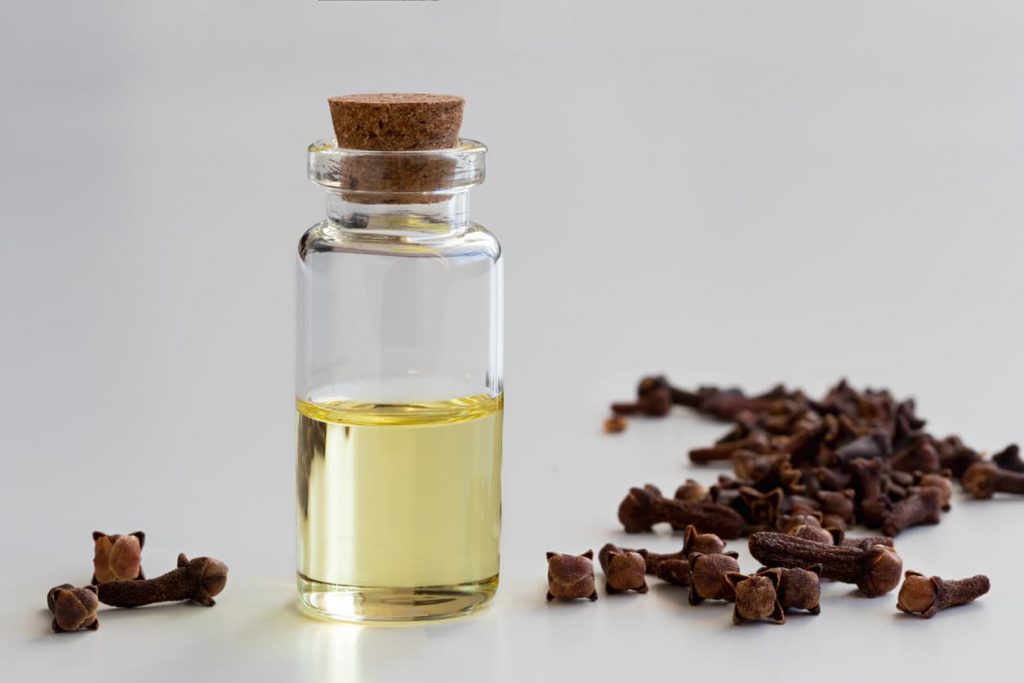 When a toothache hits you at lunch or in the middle of the night, and you need a quick fix. Clove oil can be the remedy you need if you can’t get to your dentist right away. Cloves contain an active ingredient that numbs the nerves in your mouth, offering temporary relief.
When a toothache hits you at lunch or in the middle of the night, and you need a quick fix. Clove oil can be the remedy you need if you can’t get to your dentist right away. Cloves contain an active ingredient that numbs the nerves in your mouth, offering temporary relief.
How Clove Oil Works
When you use clove oil for toothache pain, it’s the eugenol (an ingredient within clove oil) that provides relief. Eugenol is a natural anesthetic and antibacterial, and it works well at reducing inflammation in the mouth. In fact, a study by the British Association of Oral and Maxillofacial Surgeons showed that eugenol is much more effective than using another pain-relieving medication and doing nothing else. Researchers examined the symptoms of 270 patients who had a tooth extracted, and found that patients who had received a eugenol-based paste suffered the least pain, inflammation, and related aftereffects.
Using Clove Oil for Toothache
You can buy clove oil as a home remedy from most supermarkets, health food stores, and drugstores. Sometimes the product is called “oil of cloves.” Keep in mind clove oil has an unpleasant taste and can have unpleasant side effects if eaten, so it should only be used for adults and older children who aren’t likely to swallow it by mistake.
Here’s how to use it:
- To start, you’ll need a piece of clean tissue, or a cotton swab or cotton ball.
- Briefly dip the tissue or cotton in the clove oil so that it soaks up just a few drops.
- Gently wipe the oil over your gums at the point of pain.
- You can also use a whole clove if you don’t have any clove oil handy. Place the clove on the affected area and leave it there until the pain comes down.
- If the effect of clove oil is too strong, use olive oil to dilute it.
You can also take an over-the-counter pain relief medication such as ibuprofen or acetaminophen along with clove oil.
Visit the Dentist
Clove oil can reduce pain and swelling when you have a toothache, but a dental cavity is a systemic issue, and therefore clove is merely used to help with the symptoms of the toothache. After applying clove oil you may feel better, but the oil is only masking the symptoms of your problem – you should visit a dentist as soon as you can. Toothaches are usually caused by tooth decay, and the longer you delay before seeing a dentist, the worse the decay can become.
Once your dentist determines the cause of the toothache and fixes your dental problem, reduce the risk of dental pain returning by brushing with a remineralizing toothpaste like Colgate® Enamel to remineralize and strengthen tooth enamel. Floss between your teeth once a day.
A bottle of clove oil is a convenient home remedy to keep in your bathroom cabinet or shelf where children have no access. Used in small amounts, it’s safe and effective at relieving dental pain. But for long term relief, always see your dentist as the expert to treat your toothache.
